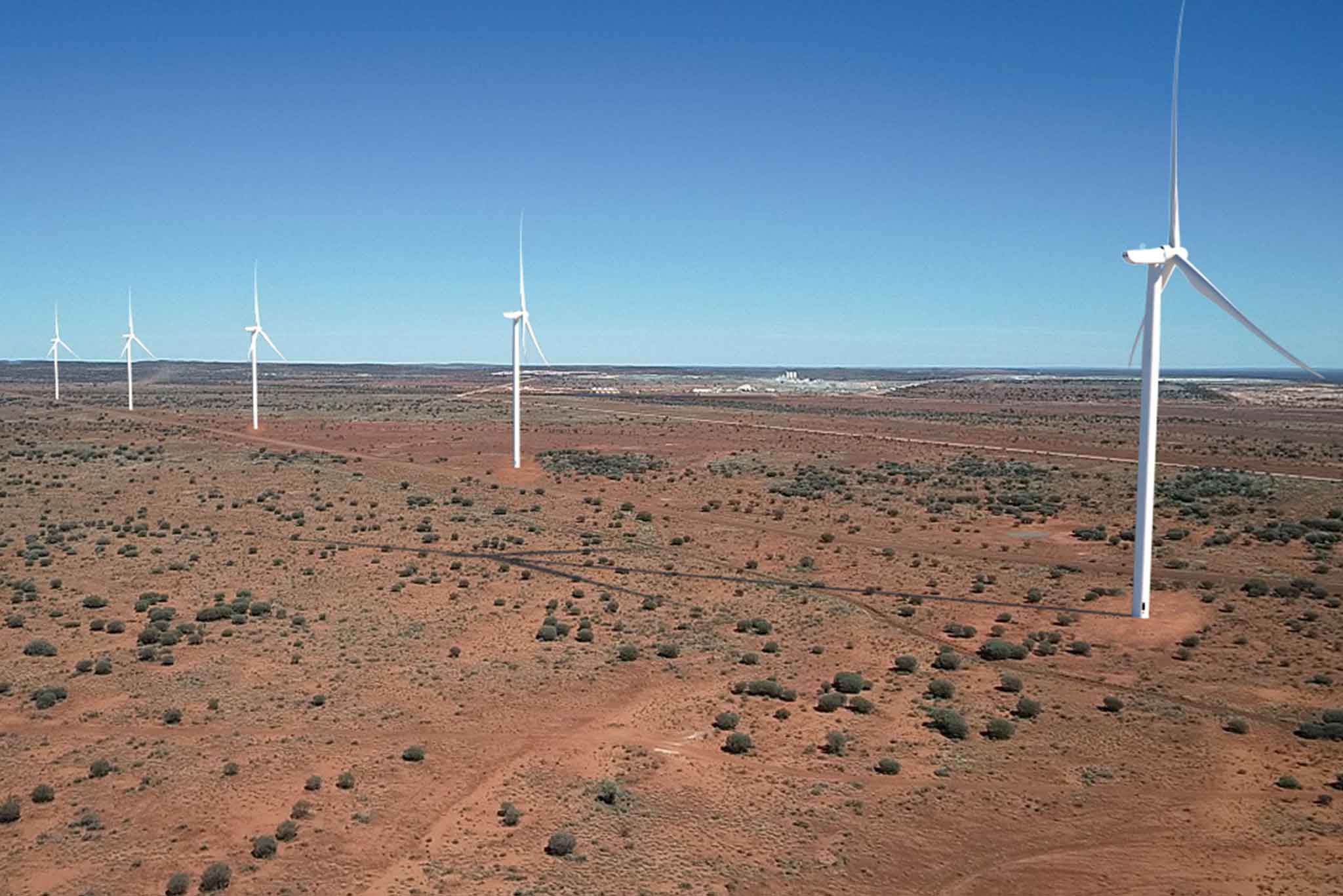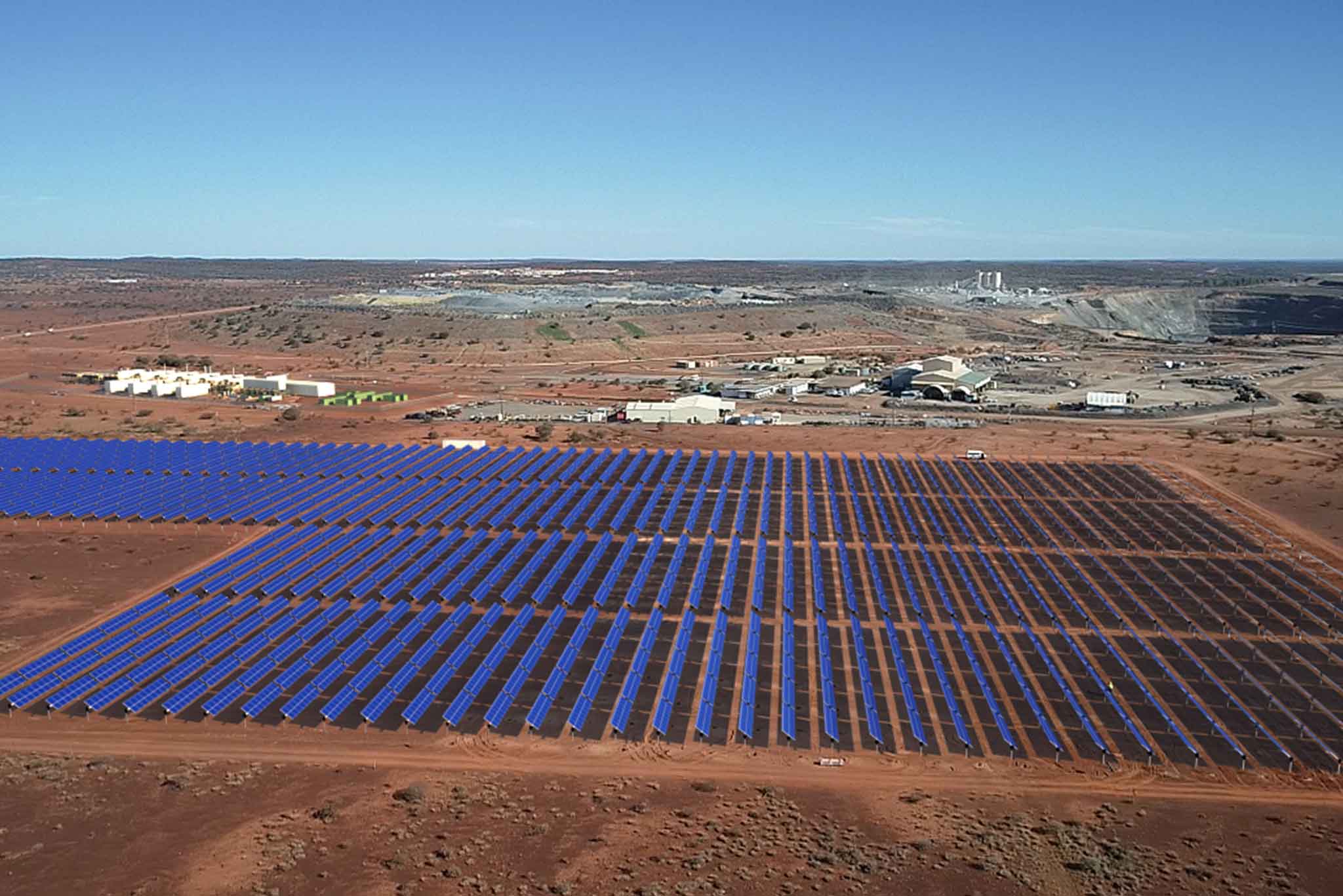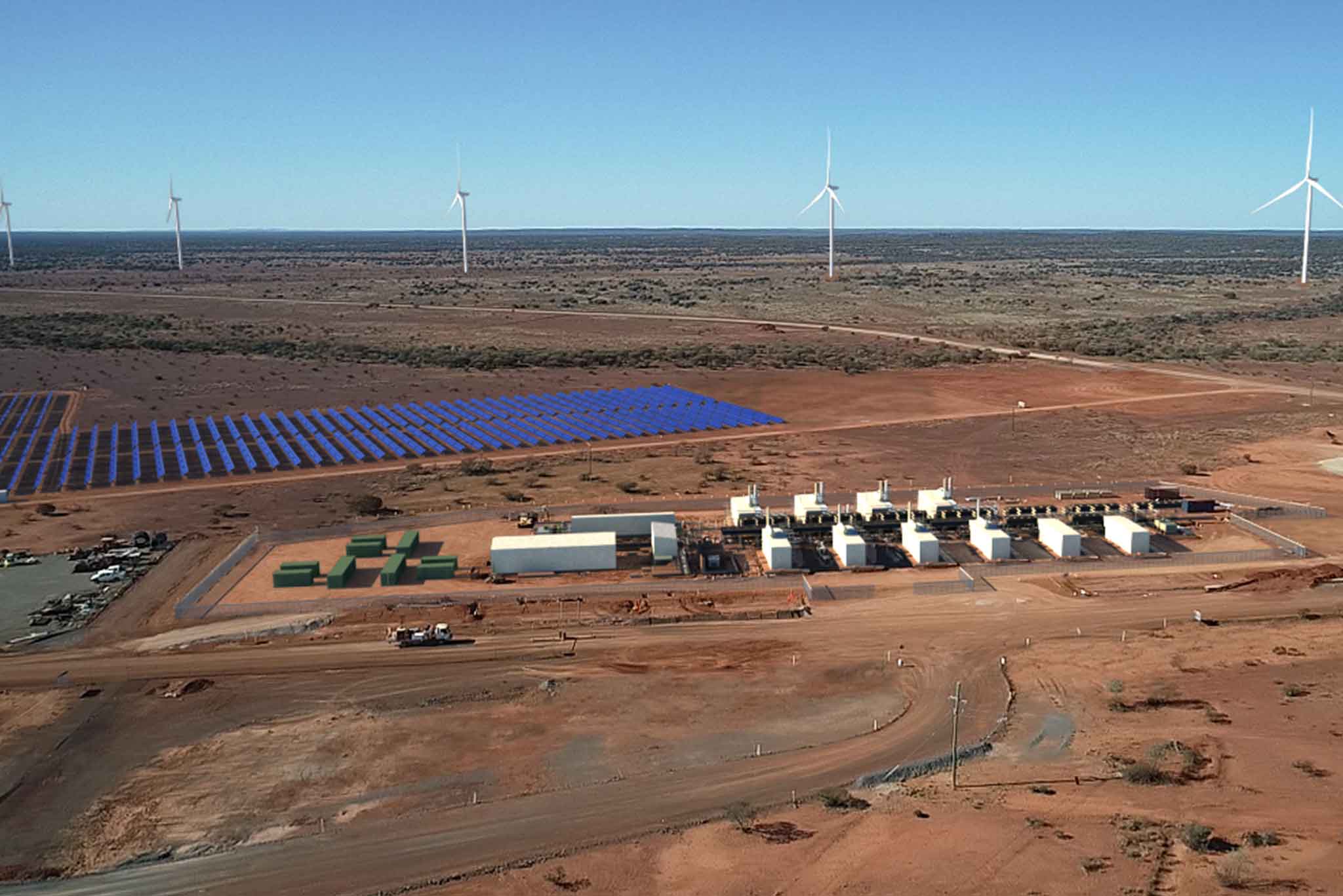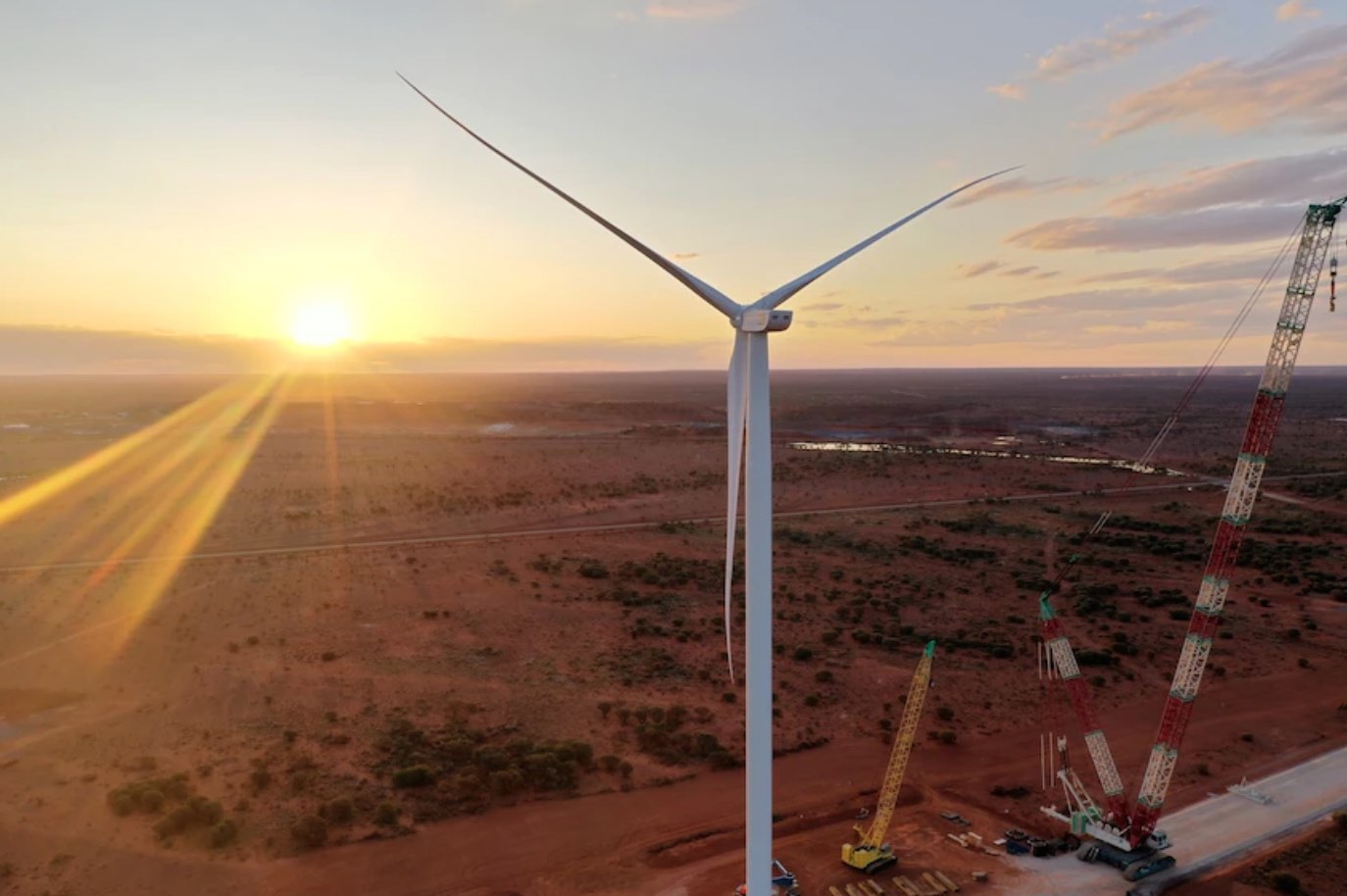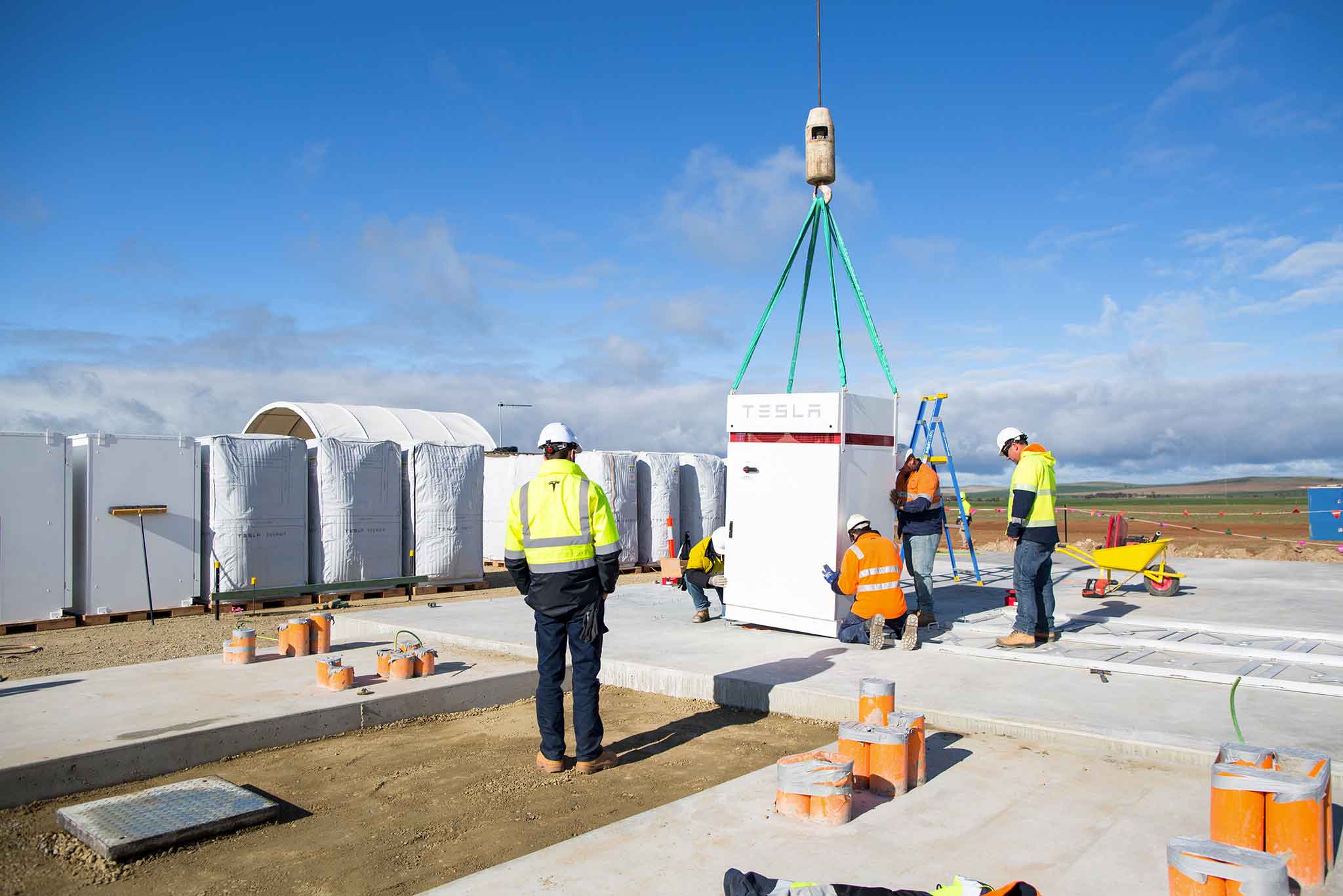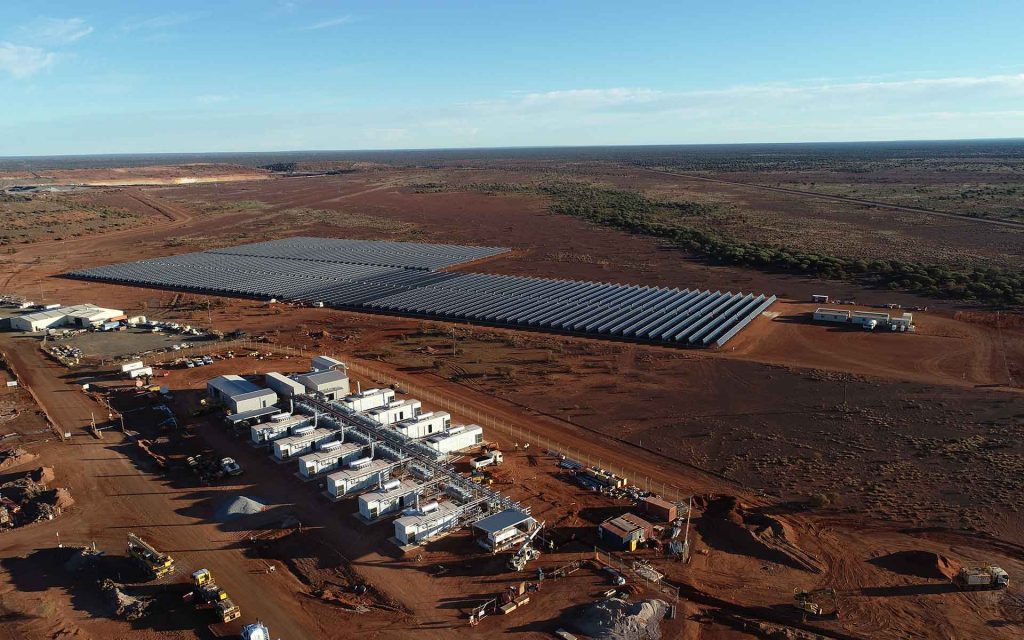Summary
A Western Australian gold mine will be the first Australian mine to be powered by a wind, solar, battery and gas microgrid.
Key results
The Agnew Renewable Hybrid Microgrid demonstrated that a remote mining operation can be powered by high penetration renewable energy and that wind power is a mature and reliable technology for use at mines.
Where wind and solar resources are complementary (wind at night and solar during the day) as they are at Agnew, there is a strong economic case for high penetration renewable projects.
Due to the variable nature of renewable energy and the synchronous stability requirements of microgrids, designing a microgrid with a factor of curtailment is currently the lowest cost method of achieving a mid to high level (50% – 80%) of renewable fraction. Above these levels there is a business case for storage which makes use of zero marginal cost curtailed renewable energy.
This project consists of:
Learn more
How the project works
The Agnew Renewable Energy Microgrid project will consist of five wind turbines delivering an 18 MW wind farm, a 10,000 panel 4 MW solar farm and a 13 MW / 4 MWh Battery Energy Storage System (BESS) with security and reliability of the microgrid underpinned by a 16 MW gas engine power station.
The renewable generation will be supported by predictive solar forecasting technology and demand-side load management.
Area of innovation
This project will provide a blueprint for organisations to deploy similar off-grid energy solutions and demonstrate a pathway for commercialisation by looking to de-risk the technical and commercial integration of high renewable energy fraction power supplies.
Gold Fields are demonstrating significant innovation with respect to the commercial arrangements with the aim of de-risking the renewable components of the hybrid power station, encouraging lower risk premiums from IPP vendors.
This includes:
- A single source of accountability for energy security with one IPP contracted to own and manage all parts of the hybrid power system
- Utilisation of technologies that integrate the ancillary service capabilities of the battery and renewable technologies to support the microgrid
- Incorporation of renewable resource forecasting to limit the need for excessive spinning reserve and engine run hours
- The mine will intrinsically take on wind and solar risk as it free issues the gas to the IPP, which negates the need for long term “bankable” wind monitoring which is not commonly available for mining projects
- The project will provide a platform for future innovation in energy storage.
Gold Fields are also adopting innovative operational practices such as dynamic load shedding, renewable resource forecasting and IPP-controlled load management to maximise renewable energy use while maintaining system security.
Benefit
The Agnew hybrid microgrid is forecast to deliver up to 60% renewable energy to the Agnew mine and reduce the mine’s carbon emissions by some 40,000 tCO2e/year, the equivalent of removing 8700 cars off the road.
The project aims to pave the way for the adoption of renewable energy in the mining industry, which has suffered in part to the perception of operational risk and high cost.
The Agnew project will demonstrate technology risk can be mitigated, as well as provide data for future projects to provide a blueprint for other companies to deploy similar off-grid energy solutions and demonstrate a pathway for commercialisation.
Additional impacts
The Agnew project will create 215 jobs across the 12 months construction phase and up to six new jobs during operations. The Agnew mine is an isolated operation, with the nearest town 130km away. There will be community engagement with stakeholders during the life of the project, which is standard practices. The knowledge sharing related to this project includes financial modelling, reporting on renewable energy fraction, the procurement process, lessons learned and overcoming barriers to commercialisation. This knowledge will be shared with ARENA and be used by Gold Fields internally for other hybrid renewable energy opportunities.



